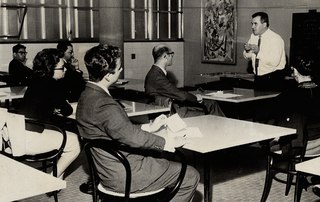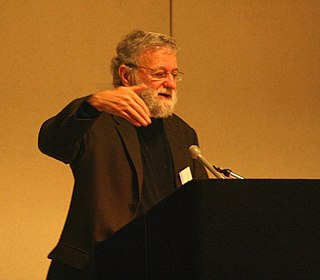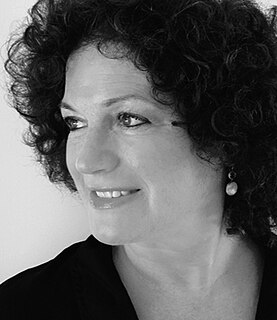 W
WOtto "Otl" Aicher was a German graphic designer and typographer. He is best known for having designed pictograms for the 1972 Summer Olympics in Munich that proved influential on the use of stick figures for public signage, as well as designing the typeface Rotis. Aicher also co-founded the Ulm School of Design.
 W
WChristopher Wolfgang Alexander is a widely influential British-American architect and design theorist, and currently emeritus professor at the University of California, Berkeley. His theories about the nature of human-centered design have affected fields beyond architecture, including urban design, software, sociology and others. Alexander has designed and personally built over 100 buildings, both as an architect and a general contractor.
 W
WGuy André Boy is a French and American Scientist and Engineer, Fellow of the International Council on Systems Engineering (INCOSE) and the Air and Space Academy. He is Professor at CentraleSupélec and ESTIA Institute of Technology. He was University Professor and Dean (2015-2017) at Florida Institute of Technology (FIT), where he created the Human-Centered Design Institute in 2010. He was Senior Research Scientist at Florida Institute for Human and Machine Cognition (IHMC). He was Chief Scientist for Human-Centered Design at NASA Kennedy Space Center (KSC) from 2010 to 2016. He is known for his work on intelligent assistance, cognitive function analysis, human-centered design (HCD), orchestration of life-critical systems, tangible interactive systems and human systems integration.
 W
WSusan M. Dray is an American human-computer interaction (HCI) and user experience (UX) professional who is a member of the CHI academy and the User Experience Professionals Association (UXPA). Dray is known for her work in the field of UX design and is also a founding member of SIGCHI, the Association for Computing Machinery's special interest group for human-computer interaction.
 W
WCharles (Chuck) M. Eastman was a professor and a pioneer in the areas of design cognition, building information modeling (BIM), solid and parametric modeling, engineering databases, product models, and interoperability. He is best known for his work on building description system, which later gave him a title as the 'father of BIM.'
 W
WJohn Heskett was a British writer and lecturer on the economic, political, cultural and human value of industrial design. Heskett was a professor at the Institute of Design, Illinois Institute of Technology (1989–2004) and school of design at Hong Kong Polytechnic University (2004–11) teaching in design history, design thinking, he became the acting dean of the latter (2011–12). He was also a visiting professor at universities in Turkey, Japan, Chile, Germany, Denmark, Sweden and Finland.
 W
WTomás Maldonado was an Argentine painter, designer and thinker, considered one of the main theorists of design theory of the legendary Ulm Model, a design philosophy developed during his tenure (1954–1967) at the Ulm School of Design in Germany.
 W
WWilliam John Mitchell was an Australian-born author, educator, architect and urban designer, best known for leading the integration of architectural and related design arts practice with computing and other technologies.
 W
WDonald Arthur Norman is an American researcher, professor, and author. Norman is the director of The Design Lab at University of California, San Diego. He is best known for his books on design, especially The Design of Everyday Things. He is widely regarded for his expertise in the fields of design, usability engineering, and cognitive science. He is a co-founder and consultant with the Nielsen Norman Group. He is also an IDEO fellow and a member of the Board of Trustees of IIT Institute of Design in Chicago. He also holds the title of Professor Emeritus of Cognitive Science at the University of California, San Diego. Norman is an active Distinguished Visiting Professor at the Korea Advanced Institute of Science and Technology (KAIST), where he spends two months a year teaching.
 W
WRivka Oxman is an Israeli architect, researcher, and professor at the Technion Institute in Haifa. Her research interests are related to design and computation, including digital architecture and methods, and exploring their contribution to the emergence of new paradigms of architectural design and practice.
 W
WDonald Alan Schön was a philosopher and professor in urban planning at the Massachusetts Institute of Technology who developed the concept of reflective practice and contributed to the theory of organizational learning.